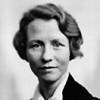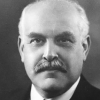Life in itself
Is nothing,
An empty cup, a flight of uncarpeted stairs.
Quotations about:
emptiness
Note not all quotations have been tagged, so Search may find additional quotes on this topic.
We pursued an empty fame and popularity even down to the applause of the playhouse, poetical competitions, and contests for garlands of grass, foolish plays on the stage, and unbridled lusts.
[Hac popularis gloriae sectantes inanitatem, usque ad theatricos plausus et contentiosa carmina et agonem coronarum faenearum et spectaculorum nugas et intemperantiam libidinum]
Augustine of Hippo (354-430) Christian church father, philosopher, saint [b. Aurelius Augustinus]
Confessions, Book 4, ch. 1 / ¶ 1 (4.1.1) (c. AD 398) [tr. Ryan (1960)]
(Source)
(Source (Latin)). Alternate translations:
Hunting after the emptiness of popular praise, down even to theatrical applauses, and poetic prizes, and strifes for grassy garlands, and the follies of shows, and the intemperance of desires.
[tr. Pusey (1838)]
Striving after the emptiness of popular fame, even to theatrical applauses, and poetic contests, and strifes for grassy garlands, and the follies of shows and the intemperance of desire.
[tr. Pilkington (1876)]
Vain seeking the emptiness of popular praise, even the applause of the theatres , and the prizes for verses, and the struggle for withering garlands, and the follies of shows, and the gratification of ungoverned desires.
[tr. Hutchings (1890)]
Education drew me to follow the toys that men call fame, applause in the theatre, prize poems, contests for crowns of hay, the follies of the stage, all the riot of passion.
[tr. Bigg (1897)]
I pursued the emptiness of popular glory and the applause of spectators, with competition for prize poems and strife for garlands of straw and the vanity of stage shows and untempered lusts.
[tr. Sheed (1943)]
In my public life I was striving after the emptiness of popular fame, going so far as to seek theatrical applause, entering poetic contests, striving for the straw garlands and the vanity of theatricals and intemperate desires.
[tr. Outler (1955)]
We would hunt for worthless popular distinctions, the applause of an audience, prizes for poetry, or quickly fading wreaths won in competition. We loved the idle pastimes of the stage and in self-indulgence we were unrestrained.
[tr. Pine-Coffin (1961)]
I and my friends would be hunting after the empty show of popularity -- theatrical applause from the audience, verse competitions, contests for crowns of straw, the vanity of the stage, immoderate lusts.
[tr. Warner (1963)]
I would be seeking empty popularity, cheers in the theatre, poetic competitions, strife for straw crowns, trifles of stage shows, and undisciplined desires.
[tr. Blaiklock (1983)]
We pursued trumpery, popular acclaim, theatrical plaudits, song-competitions and the contest for ephemeral wreaths, we watched trashy shows and indulged our interperate lusts.
[tr. Boulding (1997)]
The three horrors of modern life — talk without meaning, desire without love, work without satisfaction.
Mignon McLaughlin (1913-1983) American journalist and author
The Neurotic’s Notebook, ch. 5 (1963)
(Source)
A pessimist looks at his glass and says it is half empty; an optimist looks at it and says it is half full.
Josiah Stamp (1880-1941) English industrialist, economist, statistician, banker
Comment (1935)
There is substantial evidence that Stamp used this now-cliched phrase, or variations of it, on multiple spoken occasions in 1935, the earliest references I could find.
- The Railway Service Journal (later Transport Salaried Staff Journal) mentions 1935 after-dinner remarks by Stamp: "After dinner, Sir Josiah Stamp defined an optimist as 'the man who looks at his glass and says it is half full,' and the pessimist as 'the man who looks at it and says it is half empty.'" [Source]
- Similarly, the Bristol Chamber of Commerce Journal mentions a 1935 speech: "A pessimist is a man who looks at the glass and describes it as half empty, and an optimist is a man who describes it as half full. It is all a question of the point of view." [Source]
- A New York Times article (12 Nov 1935) includes "I came recently upon a graphic distinction drawn by Sir Josiah Stamp between an optimist and a pessimist," followed by the phrasing noted at the top. [Source, Source]
Night poured over the desert. It came suddenly, in purple. In the clear air, the stars drilled down out of the sky, reminding any thoughtful watcher that it is in the deserts and high places that religions are generated. When men see nothing but bottomless infinity over their heads they have always had a driving and desperate urge to find someone to put in the way.
Solitude is not lack.
Laurie Helgoe (b. 1960) American psychologist and author
Introvert Power, ch. 2 (2008)
(Source)
Sometimes misquoted "Solitude is not a lack."
Then, do not have one mind, and one alone
that only your opinion can be right.
Whoever thinks that he alone is wise,
his eloquence, his mind, above the rest,
come the unfolding, shows his emptiness.[μή νυν ἓν ἦθος μοῦνον ἐν σαυτῷ φόρει,
ὡς φὴς σύ, κοὐδὲν ἄλλο, τοῦτ᾽ ὀρθῶς ἔχειν.
ὅστις γὰρ αὐτὸς ἢ φρονεῖν μόνος δοκεῖ,
ἢ γλῶσσαν, ἣν οὐκ ἄλλος, ἢ ψυχὴν ἔχειν,
οὗτοι διαπτυχθέντες ὤφθησαν κενοί.]Sophocles (496-406 BC) Greek tragic playwright
Antigone, l. 705ff [Haemon] (441 BC) [tr. Wyckoff]
(Source)
Original Greek. Alt. trans.:
Then cleave not solely to this principle --
Thy words, no other man's, are free from error.
For whoso thinks that he alone is wise,
That his discourse and reason are unmatched,
He, when unwrapt, displays his emptiness.
[tr. Donaldson (1848)]
Therefore, my father, cling not to one mood,
And deem not thou art right, all others wrong.
For whoso thinks that wisdom dwells with him,
That he alone can speak or think aright,
Such oracles are empty breath when tried.
[tr. Storr (1859)]
Do not, then, bear one mood only in yourself: do not think that your word and no other, must be right. For if any man thinks that he alone is wise -- that in speech or in mind he has no peer -- such a soul, when laid open, is always found empty.
[tr. Jebb (1891)]
Oh, do not, then, retain thy will
And still believe no sense but thine
Can judge aright; the man who proudly thinks
None but himself or eloquent or wise,
By time betrayed is branded for an idiot.
[tr. Werner (1892)]
Wear not, then, one mood only in thyself; think not that thy word, and thine alone, must be right. For if any man thinks that he alone is wise, -- that in speech, or in mind, he hath no peer, -- such a soul, when laid open, is ever found empty.
[tr. Jebb (1917)]
I beg you, do not be unchangeable:
Do not believe that you alone can be right.
The man who thinks that,
The man who maintains that only he has the power
To reason correctly, the gift to speak, to soul ––
A man like that, when you know him, turns out empty.
[tr. Fitts/Fitzgerald (1939), ll. 564 ff]
Therefore I say,
Let not your first thought be your only thought.
Think if there cannot be some other way.
Surely, to think your own the only wisdom,
And yours the only word, the only will,
Betrays a shallow spirit, an empty heart.
[tr. Watling (1947), ll. 602 ff]
And now, don't always cling to the same anger,
Don't keep saying that this, and nothing else, is right.
If a man believes that he along has a sound mind,
And no one else can speak or think as well as he does,
Then, when people study him, they'll find an empty book.
[tr. Woodruff (2001)]
So, don’t be so single-minded. You said it yourself quite rightly: he who thinks that he’s the only one with a brain or a tongue or a soul, if you open him up you’ll find that he’s a hollow man.
[tr. Theodoridis (2004)]
So don’t let your mind dwell on just one thought,
that what you say is right and nothing else.
A man who thinks that only he is wise,
that he can speak and think like no one else,
when such men are exposed, then all can see
their emptiness inside.
[tr. Johnston (2005), ll. 799 ff]
Do not wear one and only one frame of mind in yourself,
that what you say, and nothing else, is right.
Whoever imagines that he and he alone has sense
or has a tongue or an essence that no other has,
these men, when unfolded, are seen to be empty.
[tr. Tyrell/Bennett]
All sins are attempts to fill voids.
Simone Weil (1909-1943) French philosopher
Gravity and Grace [La Pesanteur et la Grâce], “To Desire Without An Object” (1947) [ed. Thibon] [tr. Crawford/von der Ruhr (1952)]
(Source)








